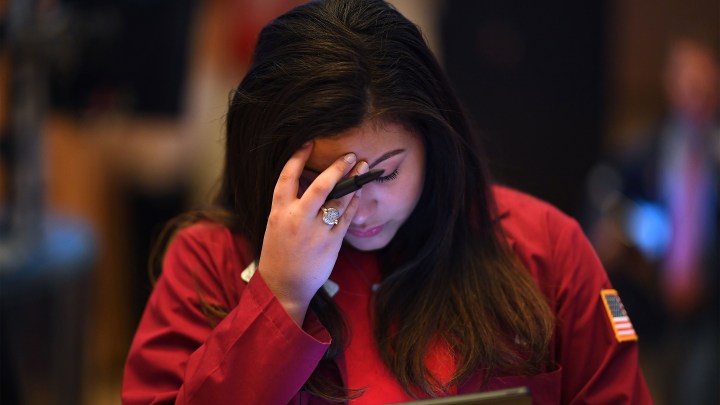
Bond yields hit a record low

The yield on the benchmark 10-year Treasury note hit its lowest level ever Friday, a bit over 1.1%. That means the government can borrow $100, do whatever it wants with that money for a decade, and then at the end of it, pay back just a $101 and some change. That’s basically free money.
We pay attention to bond yields because they can tell us a lot about where the economy’s going and where investors’ heads are at.
Yield just means how much money you’re going to make on a bond. Very simply, if bond yields are falling, it means investors are paying more money to purchase bonds with smaller payoffs.
“Crazy lows, I’ve never seen it this low,” said Ken Kuttner, a professor of economics at Williams College in Williamstown, Massachusetts. “This is unprecedented.”
So why would investors put money in bonds with very little payoff? One reason is that the stock market is terrifying. Fears about COVID-19, the disease caused by the new coronavirus, have wiped out as much as $6 trillion of value from global markets.
“When there’s a lot of volatility in the stock market, investors are going to be pulling their money out of stocks, [and] they have to put it somewhere,” Kuttner said.
U.S. Treasurys are just about the safest place you can put your money. Investors are saying low payoffs be damned, the world out there is very unsafe for my money. Torsten Slok, chief economist at Deutsche Bank, said there’s a lot of uncertainty about what will happen in the economy going forward.
He said all the regular numbers that might normally offer some reassurance, like the jobs numbers that come out next week, are not useful right now.
“Even those indicators will not give us any information about how consumers and companies will and have reacted,” Slok said.
People are flying blind. Another reason why investors are OK with smaller and smaller yields on bonds is because they think low returns are going to be the norm for a while. Specifically, they believe interest rates are going to fall.
“Now it looks like markets are expecting the [Federal Reserve] to cut interest rates three times this year,” said Seth Carpenter, chief economist at UBS. “Usually, the market makes that kind of inference because they expect some sort of weakness or at least risk of weakness of the U.S. economy.”
The one thing that investors — and everyone else — need right now is a better idea of just what COVID-19 will or will not do to the global economy.
There’s a lot happening in the world. Through it all, Marketplace is here for you.
You rely on Marketplace to break down the world’s events and tell you how it affects you in a fact-based, approachable way. We rely on your financial support to keep making that possible.
Your donation today powers the independent journalism that you rely on. For just $5/month, you can help sustain Marketplace so we can keep reporting on the things that matter to you.












